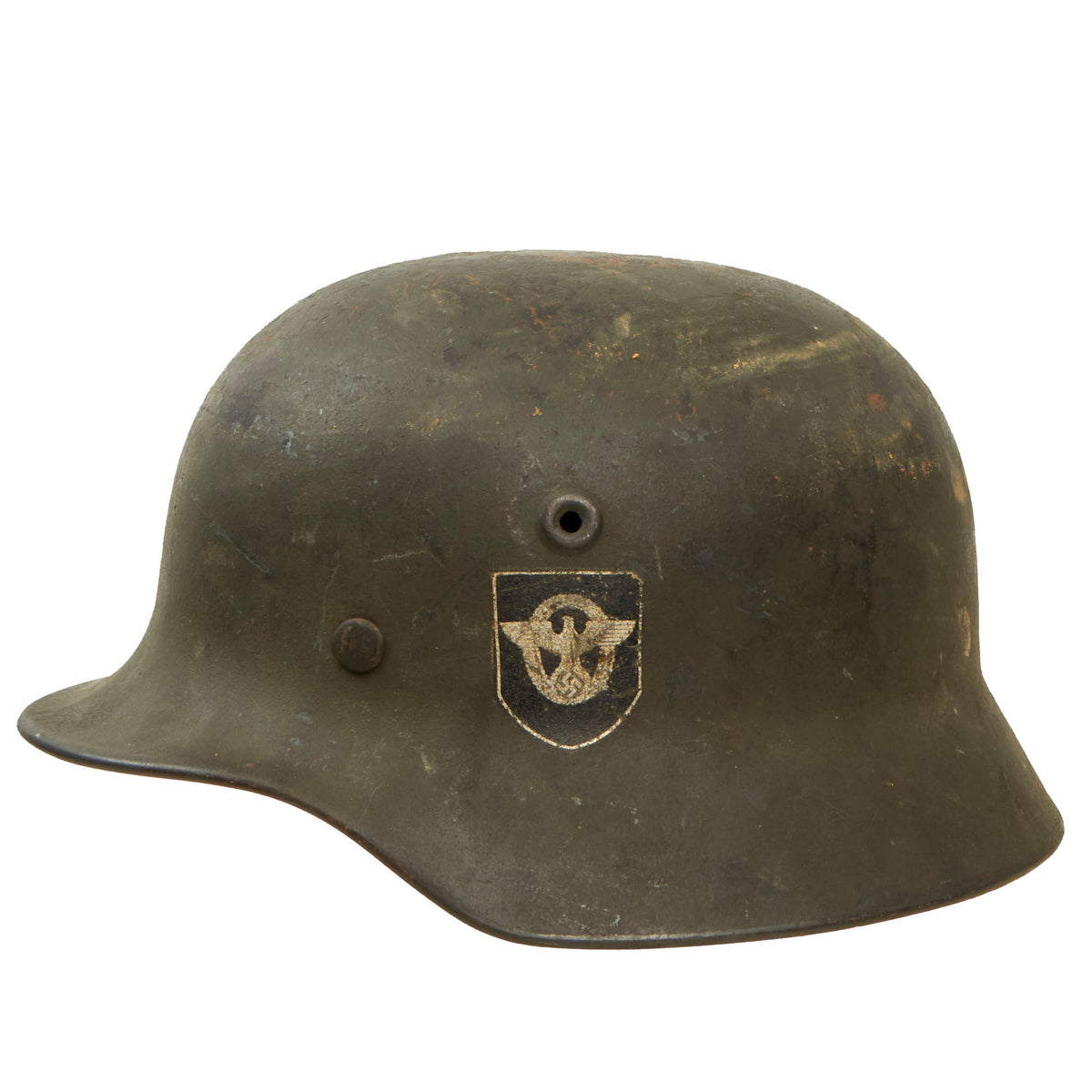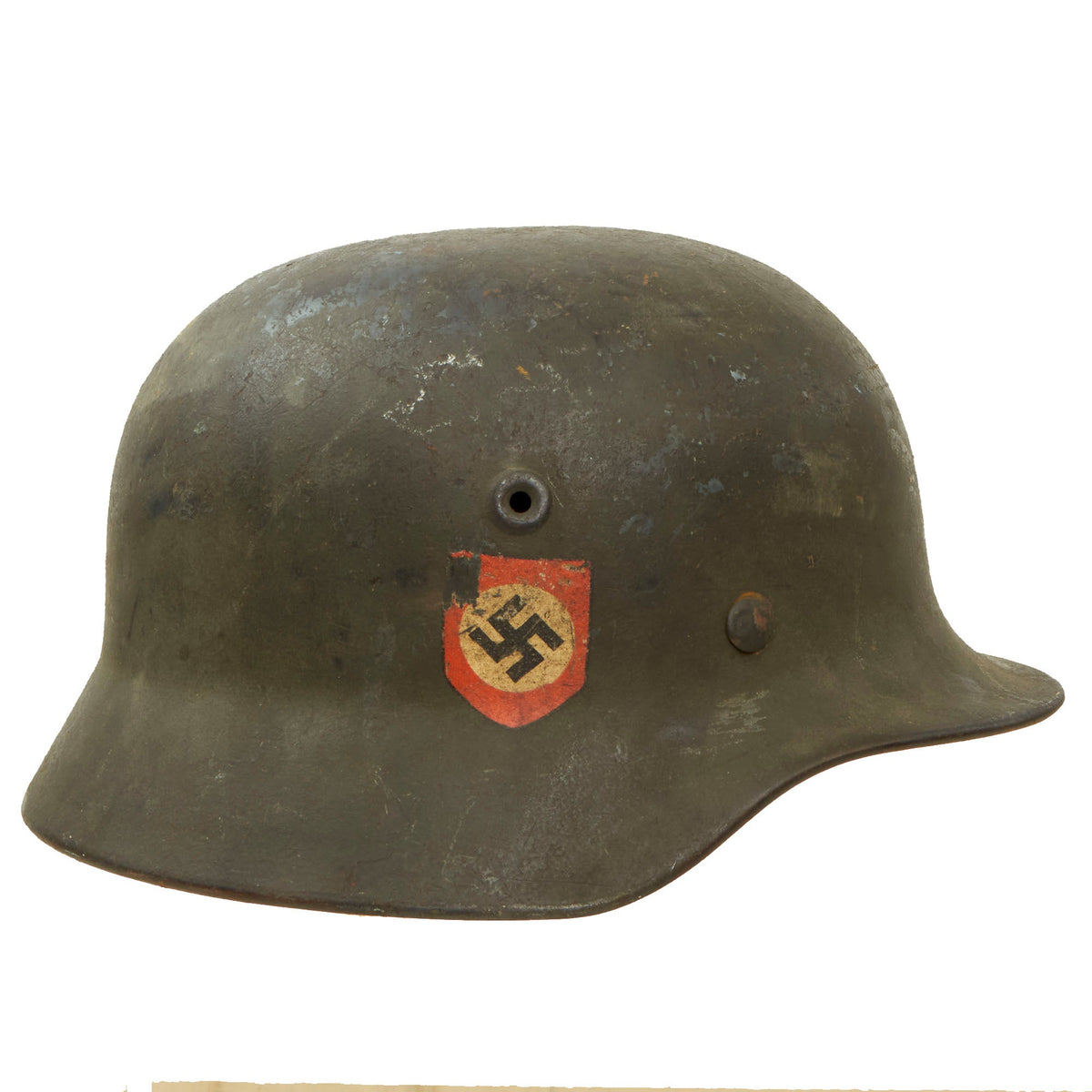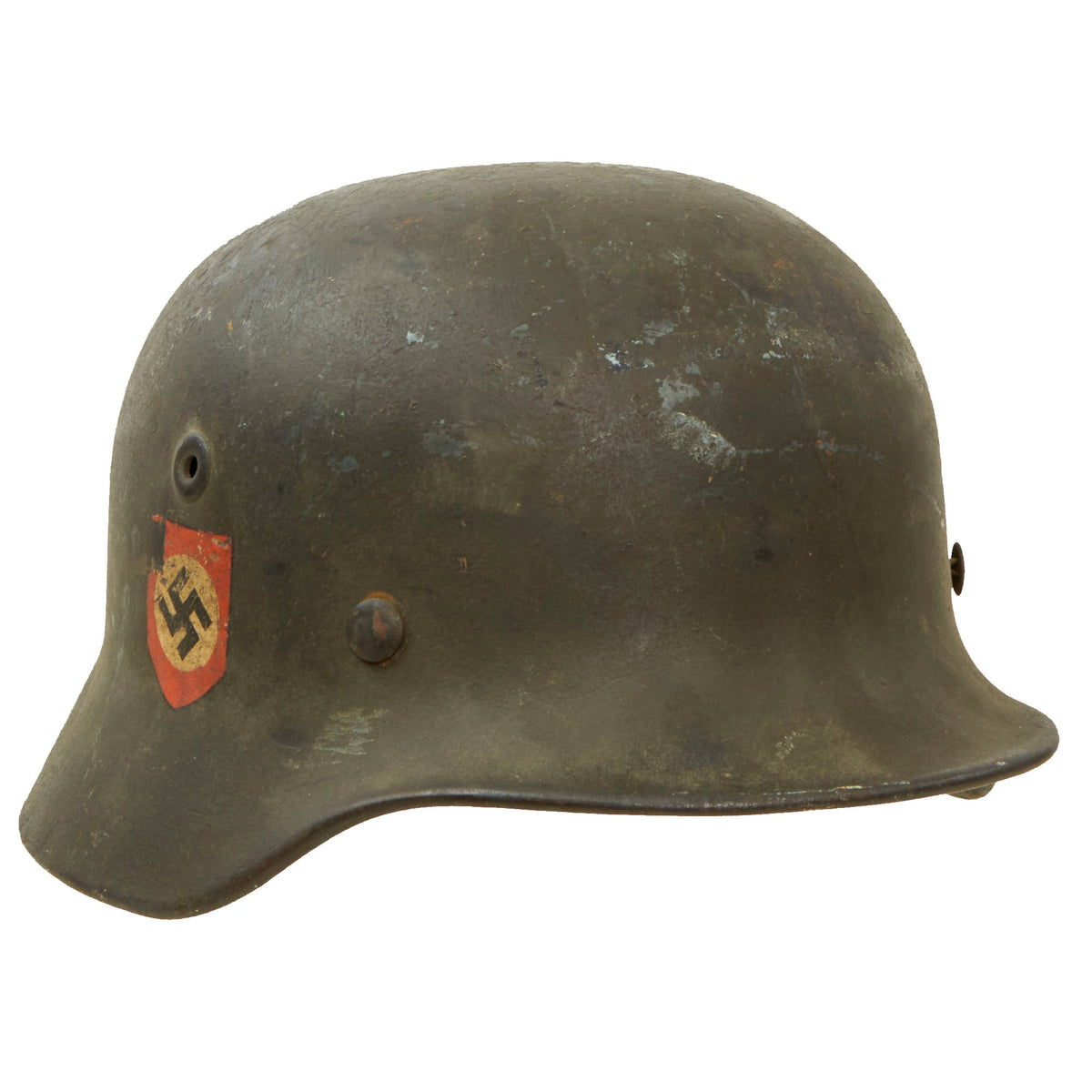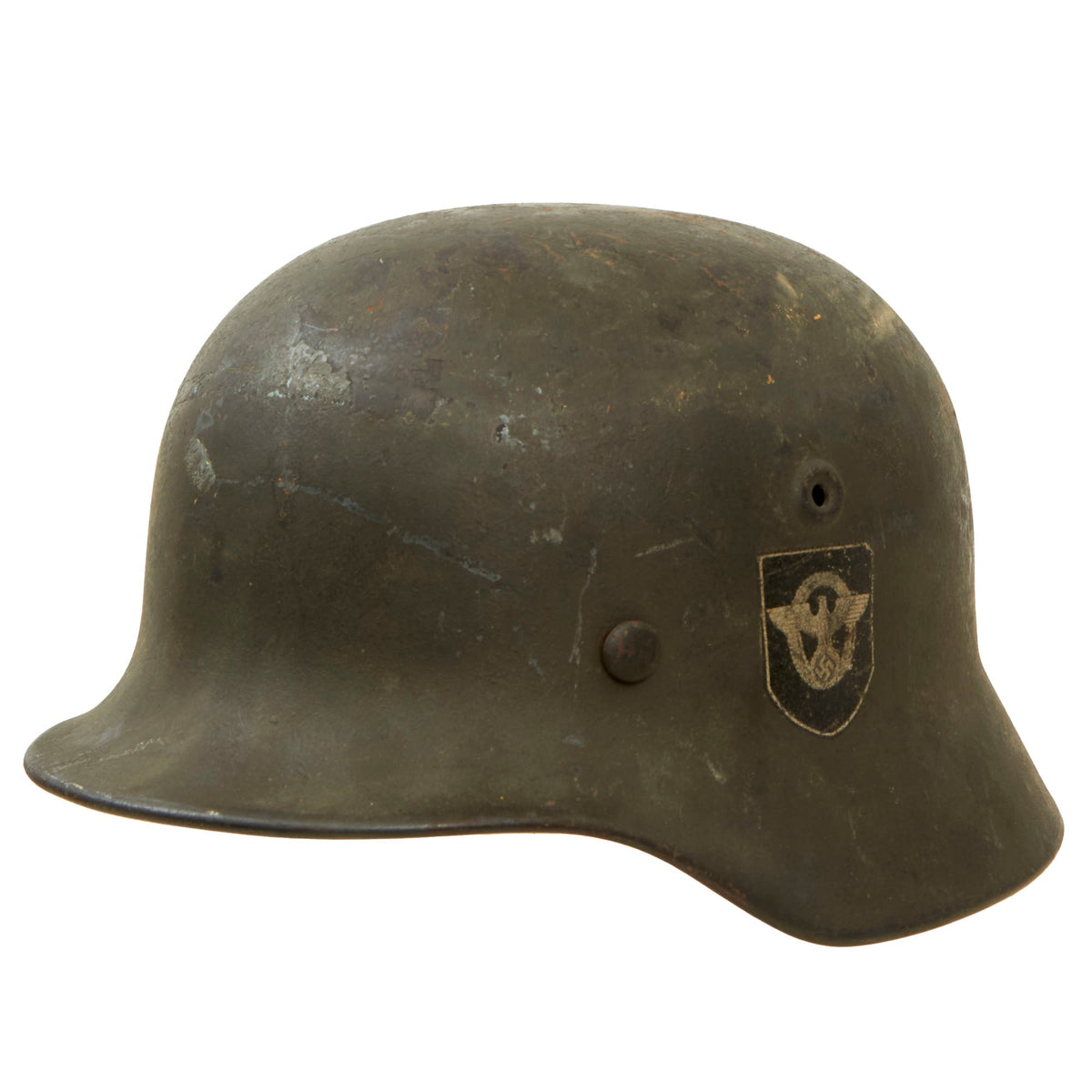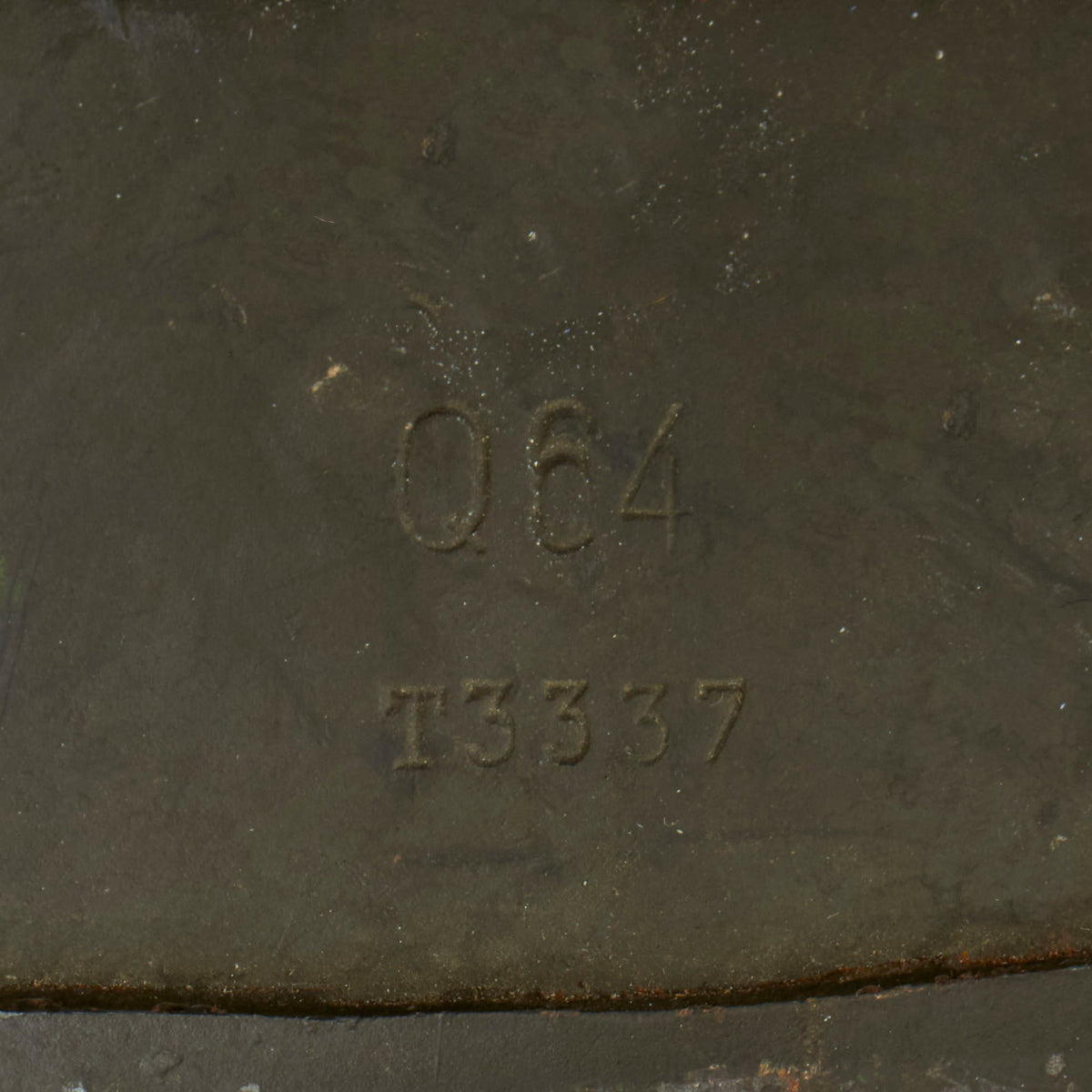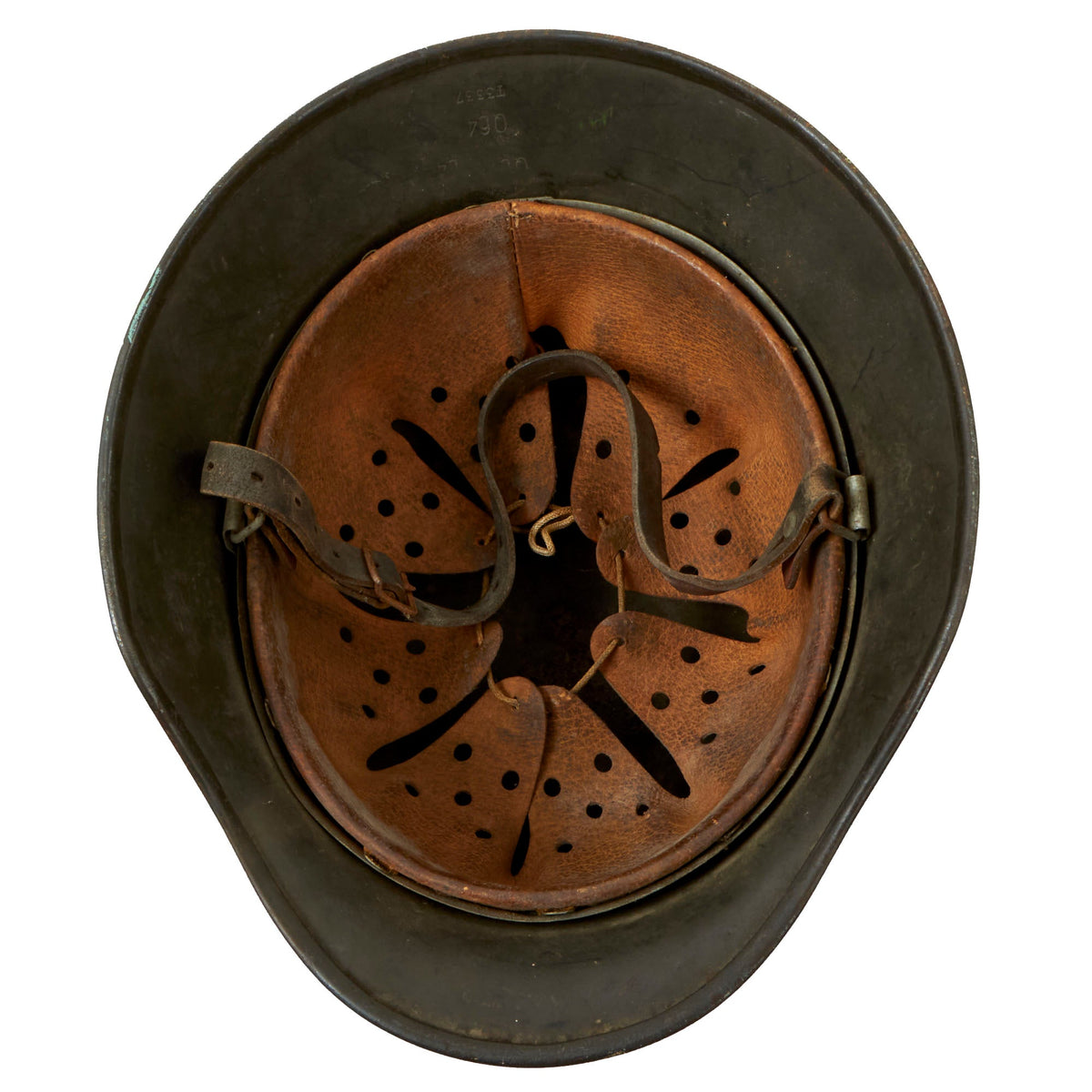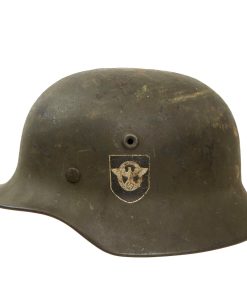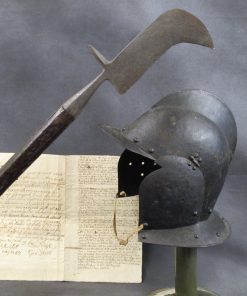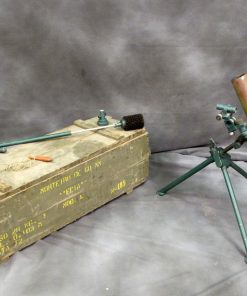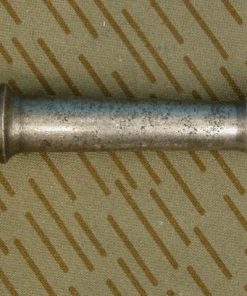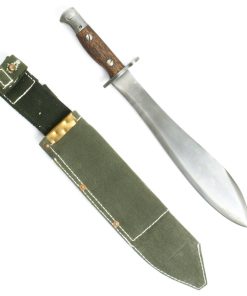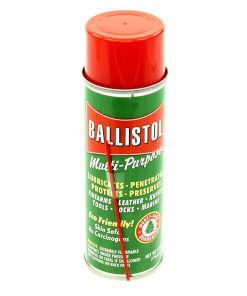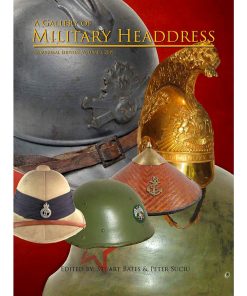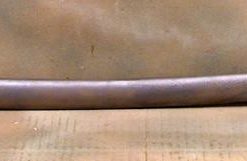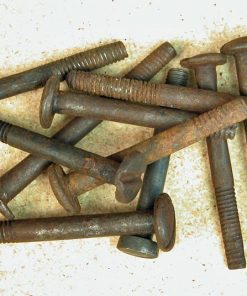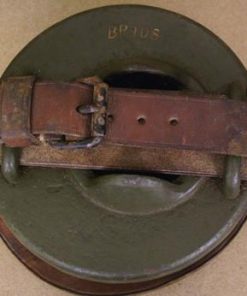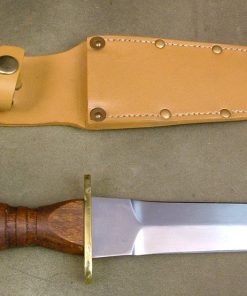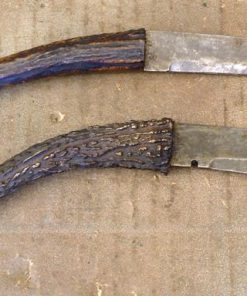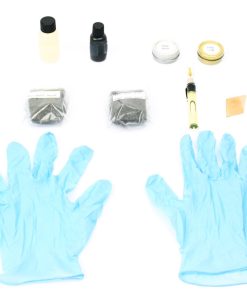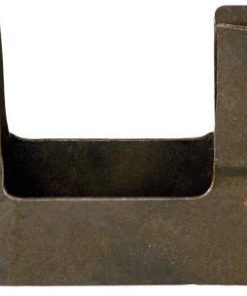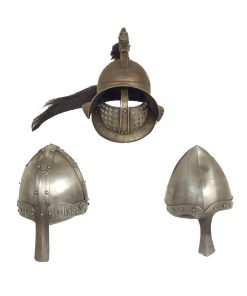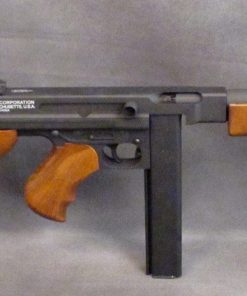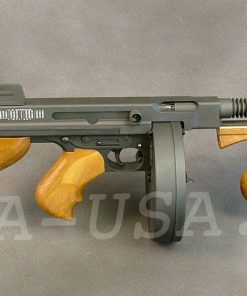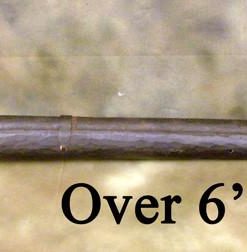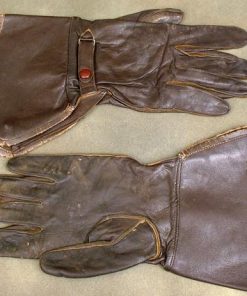Original German WWII Double Decal NSDAP Civic Police M40 Steel Combat Helmet with 1943 Dated 57cm Liner & Chinstrap – Q64 Original Items
$ 2.495,00 $ 623,75
Original Item: Only One Available. This is a great all original example of a German WWII M40 Police Helmet, complete with original paint and decals. This is an eye catching helmet, and the first example we have been able to offer in years. It is a truly lovely helmet, in very good condition with just the right amount of period wear to give it that great “broken in” look. Field Police units served in frontline capacity, serving on the front, and also operating behind the lines fighting partisans. The Feldpolizei units operated under the guise of the SS.
This stamped sheet steel construction helmet retains much of its original paint but does show wear and use. It is painted in a very nice lightly textured dark gray paint, which is retained about 80%. It is a later war helmet, at a time when they started using different materials for the outer finish. The helmet features genuine double decals of the NSDAP civic eagle on the left side and the swas on a red shield on the right. Both show period wear and age related deterioration, however they still look great, with the eagle decal retained at about 85%, while the party shield is about 75%, with a corner having flaked off.
The shell is stamped with Q64 on the rear skirt above heat lot T3337, indicating that F.W. Quist G.m.b.H in Esslingen, Germany manufactured it. As the war progressed, Quist moved the size stamping to the rear to save production time, as did other makers. Quist however did not switch production to the M42 helmets, and made the M40 up until 1945. Size 64 is a nice medium large size that can accommodate liners from 56cm to 57cm or US 7 to 7 1/8 . Size 64 shells are harder to find and are therefore more valuable to a collector.
All three original liner retaining pins are present with most of the original paint still intact, showing light chipping on all. The interior of the helmet still has an original M31 leather liner with all eight fingers still present, showing light to moderate wear and staining from service. The leather used is the later war pigskin, thicker and more textured than the leather used earlier in the war. The original top tie is present, still threaded through the ends of the fingers. There is some dirt and staining on the leather, but no dry rot or splitting we can see, and the original top tie is still present. The later war issue galvanized steel liner band is marked on the left outer side with 64 n.A. / 57, indicating that the liner band is a size 57, intended for a 64 shell.
The right side has the full maker information clearly stamped:
Metall-Lederverarbeitung W.Z.
1943
Bln.- Ch’burg 5
This indicates production by the metal and leather working company Werner Zahn, based in Berlin – Charlottenburg, in the year 1943, which fits right into the later war period.
Attached to the liner is a complete original later war style chin strap, with all steel hardware, which is a bit oxidized. The leather is a bit stiff and dried out, but has no major cracks or tears. Interestingly, there are series of small v-shaped notches cut into one side of the longer portion, which we do not know the purpose of.
Overall a very nice 100% genuine rare M40 Double Decal NSDAP Civic Police Combat helmet! M40 helmets of this quality are always the hardest to find on the market. This is an item that will only continue to appreciate in value over time.
The German Helmet:
The first “modern” steel helmets were introduced by the French army in early 1915 and were shortly followed by the British army later that year. With plans on the drawing board, experimental helmets in the field, (“Gaede” helmet), and some captured French and British helmets the German army began tests for their own steel helmet at the Kummersdorf Proving Grounds in November, and in the field in December 1915. An acceptable pattern was developed and approved and production began at Eisen-und Hüttenwerke, AG Thale/Harz, (Iron and Foundry Works), in the spring of 1916.
These first modern M16 helmets evolved into the M18 helmets by the end of WWI. The M16 and M18 helmets remained in usage through-out the Weimar Reichswehr, (National Defence Force, Circa 1919-1933), era and on into the early years of the Third Reich until the development of the smaller, lighter M35 style helmet in June 1935.
In 1934 tests began on an improved Stahlhelm, whose design was a development of World War I models. The Eisenhüttenwerke company of Thale carried out prototype design and testing, with Dr. Friedrich Schwerd once again taking a hand.
The new helmet was pressed from sheets of molybdenum steel in several stages. The size of the flared visor and skirt was reduced, and the large projecting lugs for the obsolete armor shield were eliminated. The ventilator holes were retained, but were set in smaller hollow rivets mounted to the helmet’s shell. The edges of the shell were rolled over, creating a smooth edge along the helmet. Finally, a completely new leather suspension, or liner, was incorporated that greatly improved the helmet’s safety, adjustability, and comfort for each wearer. These improvements made the new M1935 helmet lighter, more compact, and more comfortable to wear than the previous designs.
The Army’s Supreme Command officially accepted the new helmet on June 25, 1935 and it was intended to replace all other helmets in service.
More than 1 million M1935 helmets were manufactured in the first two years after its introduction, and millions more were produced until 1940 when the basic design and production methods were changed, replacing the multi-piece riveted vent with one stamped directly into the steel. Later, in 1942 the rolled steel rim was removed from the pattern to further expedite production.
Fast Shipping with Professional Packaging
Thanks to our longstanding association with UPS FedEx DHL, and other major international carriers, we are able to provide a range of shipping options. Our warehouse staff is expertly trained and will wrap your products according to our exact and precise specifications. Prior to shipping, your goods will be thoroughly examined and securely secured. We ship to thousands clients each day across multiple countries. This shows how we're dedicated to be the largest retailer on the internet. Warehouses and distribution centres can be located throughout Europe as well as the USA.
Note: Orders with more than one item will be assigned a processing date depending on the item.
Before shipping before shipping, we'll conduct a thorough inspection of the items you have ordered. Today, the majority of orders will be delivered within 48 hours. The delivery time will be between 3-7 days.
Returns
The stock is dynamic and we cannot completely manage it because multiple stakeholders are involved, including our factory and warehouse. So the actual stock may alter at any time. It's possible that you may not receive your order once the order has been made.
Our policy is valid for a period of 30 days. If you don't receive the product within 30 days, we are not able to issue a refund or an exchange.
You can only return an item if it is unused and in the same state as the day you received it. You must have the item in its original packaging.
Related products
Uncategorized
Uncategorized
Uncategorized
Armored Burgonet Helmet & Polearm from Scottish Castle Leith Hall Circa 1700 Original Items
Uncategorized
Uncategorized
Australian WWII Owen MK1 Machine Carbine SMG Custom Fabricated Replica with Sling Original Items
Uncategorized
Uncategorized
Uncategorized
Uncategorized
Angolan Rebel 1970s era 60mm Inert Display Mortar from Angolan Civil War Original Items
Uncategorized
Uncategorized
Uncategorized
Armoured Fighting Vehicles of the World: AFVs of World War One (Hardcover Book) New Made Items
Uncategorized
Uncategorized
Uncategorized
Uncategorized
